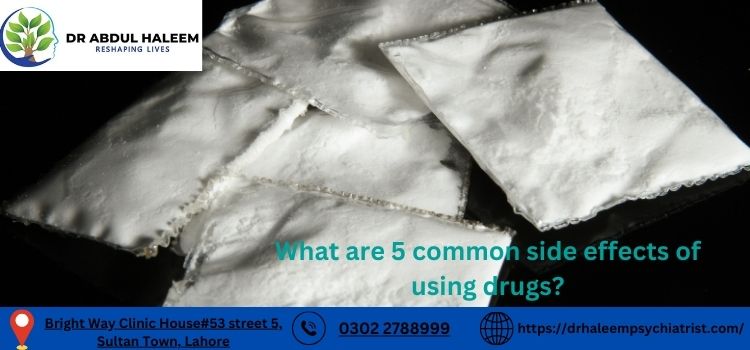Obsessive Compulsive Disorder (OCD) is a mental health disorder characterized by persistent and uncontrollable thoughts (obsessions) and repetitive behaviors or rituals (compulsions). It affects approximately 2-3% of the population worldwide, making it one of the most common mental disorders. Now question arises Does exercise help OCD?
In this blog, we will explore the potential benefits of exercise on OCD and how incorporating physical activity into your routine may help improve symptoms and overall quality of life.
Let’s dive in to get more details.
Does exercise help OCD?

When it comes to managing OCD, there are various treatment options available such as therapy, medication, and lifestyle changes. While exercise may not directly cure or eliminate symptoms of OCD, research suggests that regular physical activity can have positive effects on overall mental health and well-being.
The Link Between Exercise and Mental Health
Numerous studies have shown the benefits of exercise on mental health, including reducing symptoms of anxiety and depression. Exercise has been found to release feel-good chemicals in the brain, such as endorphins and serotonin, which can improve mood and reduce stress.
In addition, physical activity can also help improve self-esteem and cognitive function, both of which can be impacted by OCD.
How Exercise May Help With OCD?
There are some ways through exercise may help with OCD. They are mentioned below:
Reducing Anxiety and Stress
OCD is often linked to high levels of anxiety and stress. Exercise has been found to be a natural stress reliever, as it can help decrease the levels of cortisol (the stress hormone) in the body. By reducing overall anxiety and stress, exercise may also indirectly help alleviate symptoms of OCD.
Distracting from Obsessions and Compulsions
Engaging in physical activity can also serve as a helpful distraction from obsessive thoughts or compulsive behaviors. By focusing on the task at hand and being present in the moment, individuals with OCD may find temporary relief from their symptoms.
Improving Sleep Quality
Many individuals with OCD struggle with sleep disturbances, which can worsen symptoms of the disorder. Regular exercise has been found to improve sleep quality, making it easier for individuals with OCD to fall asleep and stay asleep throughout the night.
Boosting Self-Esteem
OCD can often lead to feelings of low self-worth and shame. Engaging in exercise and achieving personal fitness goals can help boost self-esteem and confidence, which may have a positive impact on overall mental health.
What Types of Exercise Can Help?
Any form of physical activity can have beneficial effects on mental health, but some types may be more effective for individuals with OCD. Activities that involve repetitive movements, such as walking, running, and yoga, may provide a similar release to compulsive behaviors and help reduce anxiety.
It’s also important to find an exercise routine that is enjoyable and sustainable for the individual, as consistency is key in reaping the benefits of exercise on mental health.
Tips for Incorporating Exercise into Your Routine
- Start small: If you’re new to exercising, start slow and gradually increase intensity and duration. This will help prevent burnout or injury.
- Find an accountability buddy: Having a friend or family member join you in your exercise routine can help keep you motivated and committed.
- Mix it up: Don’t be afraid to try different types of physical activity to find what works best for you. This will also prevent boredom and make exercising more enjoyable.
- Be kind to yourself: It’s important to remember that any form of physical activity, no matter how small, is beneficial for mental health. Don’t put too much pressure on yourself and celebrate small victories.
Conclusion
While exercise may not be a cure for OCD, it can certainly have positive effects on overall mental health and well-being. By reducing anxiety and stress, providing a distraction from obsessive thoughts and compulsive behaviors, improving sleep , and boosting self-esteem, regular physical activity can be a valuable tool in managing symptoms of OCD.
Remember to always consult with a healthcare professional before starting any new exercise routine, and listen to your body’s needs. Keep moving and take care of your mental health!
FAQs
Most frequently asked questions by people are mentioned below:
What is the best exercise for OCD?
There is no single “best” exercise for OCD (Obsessive Compulsive Disorder), as everyone’s symptoms and needs may vary. However, regular physical activity can be incredibly beneficial for managing OCD symptoms.
What is the best way to overcome OCD?
There is no single “best” way to overcome OCD, as it can be a complex and individualized process. However, seeking professional help from a therapist or counselor who specializes in treating OCD can be extremely helpful.
How I cured my OCD thoughts?
It is important to note that there is no “cure” for OCD, as it is a chronic condition. However, through therapy and medication, individuals can learn to manage their symptoms and decrease the impact of obsessive thoughts.


